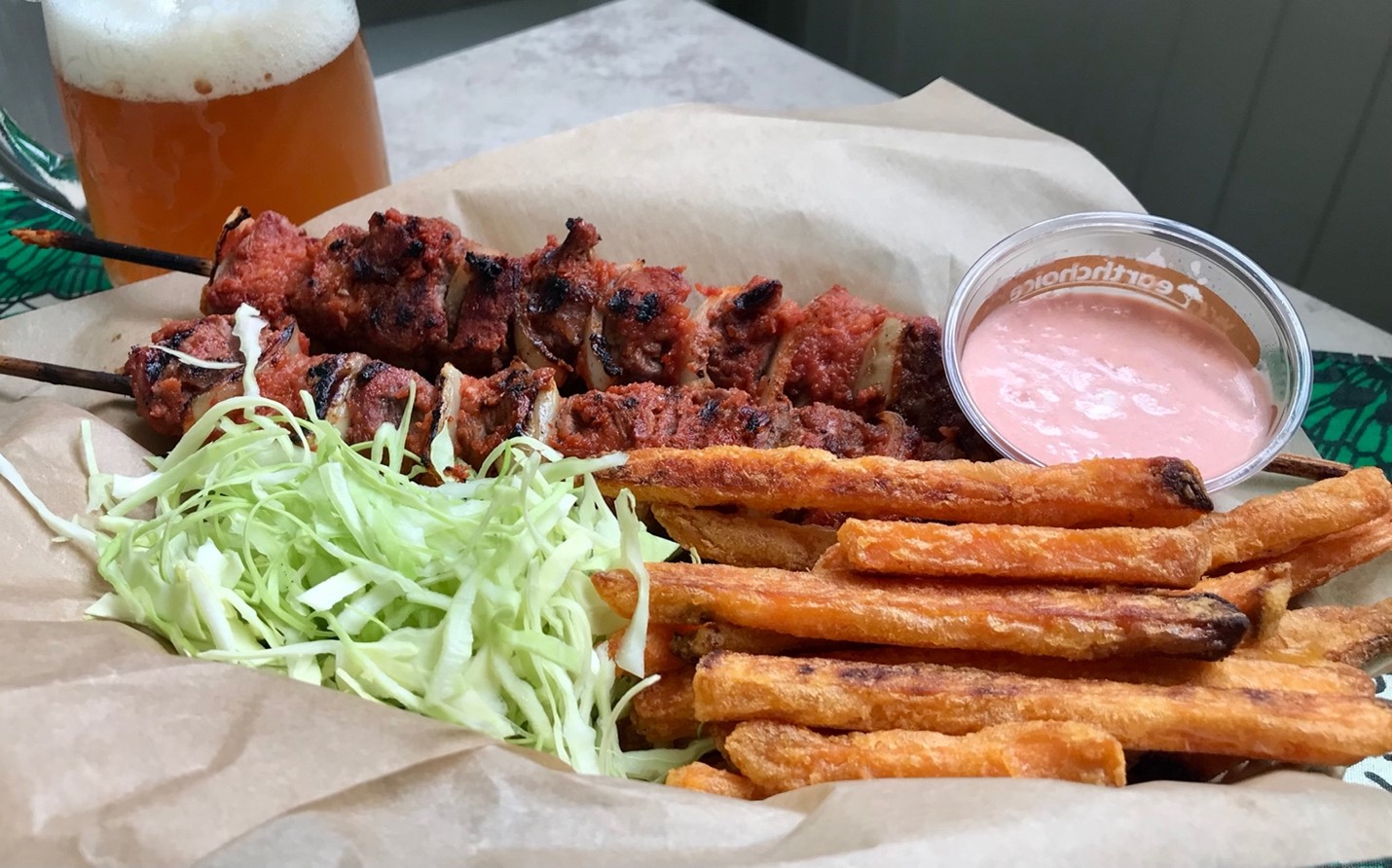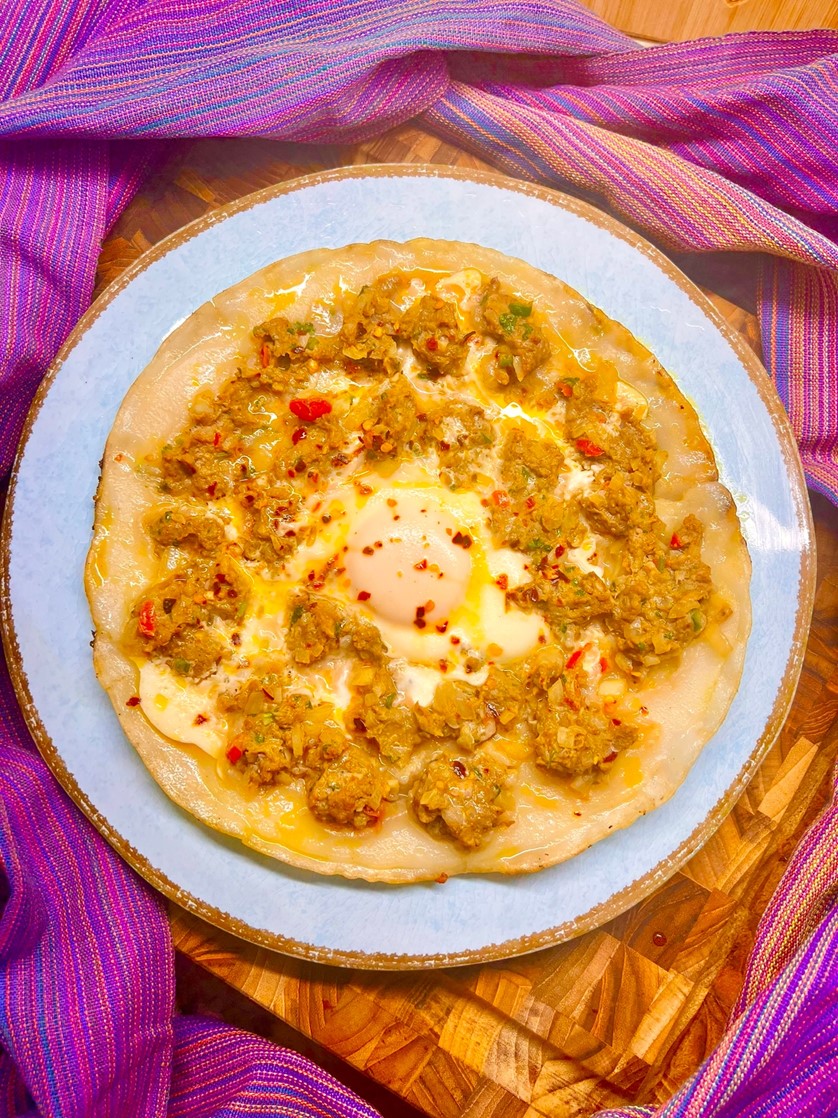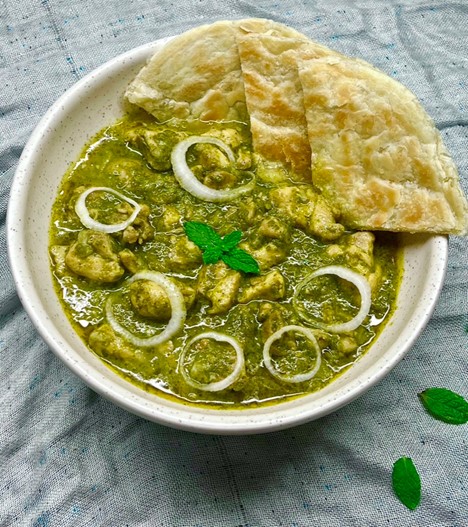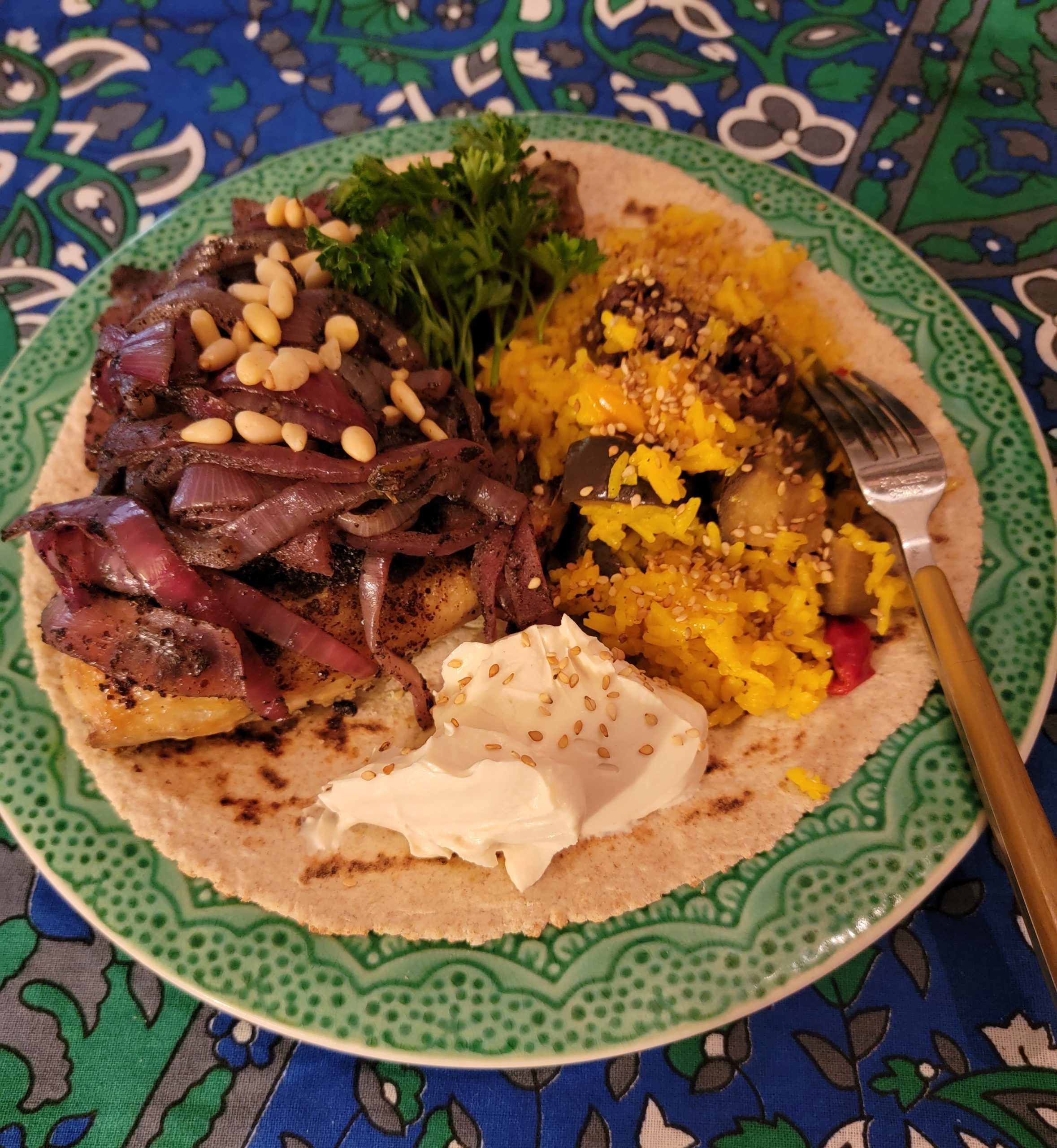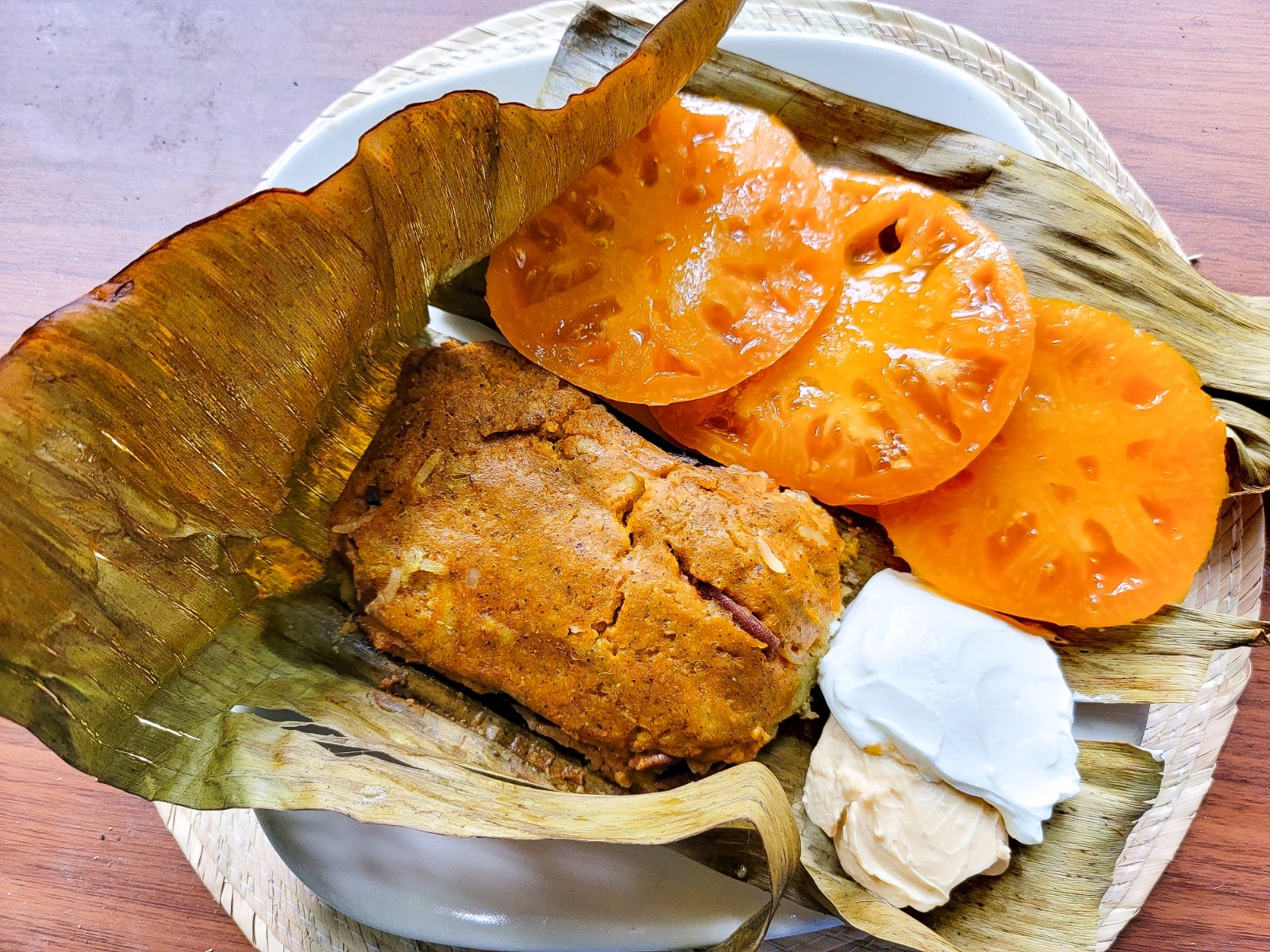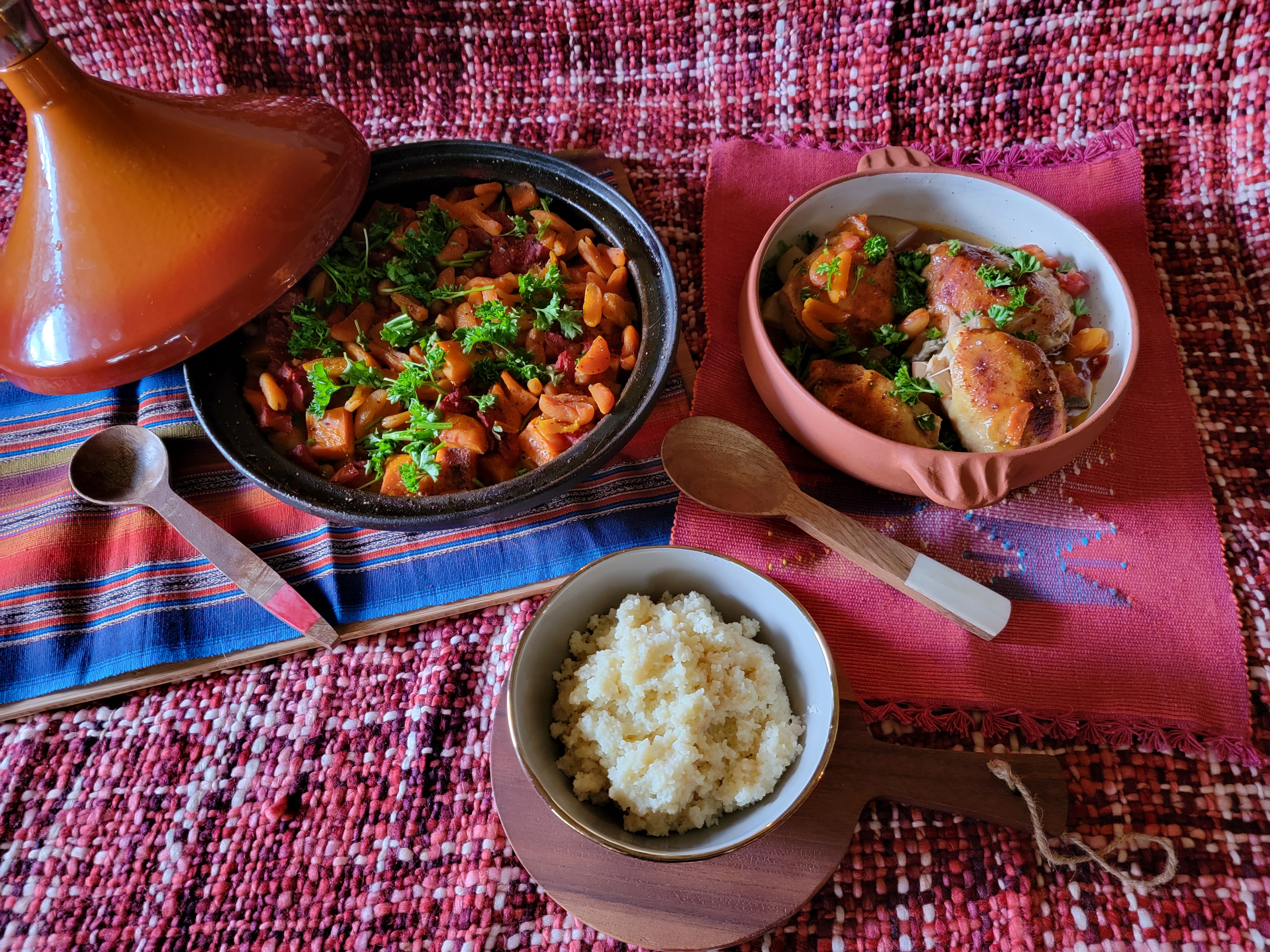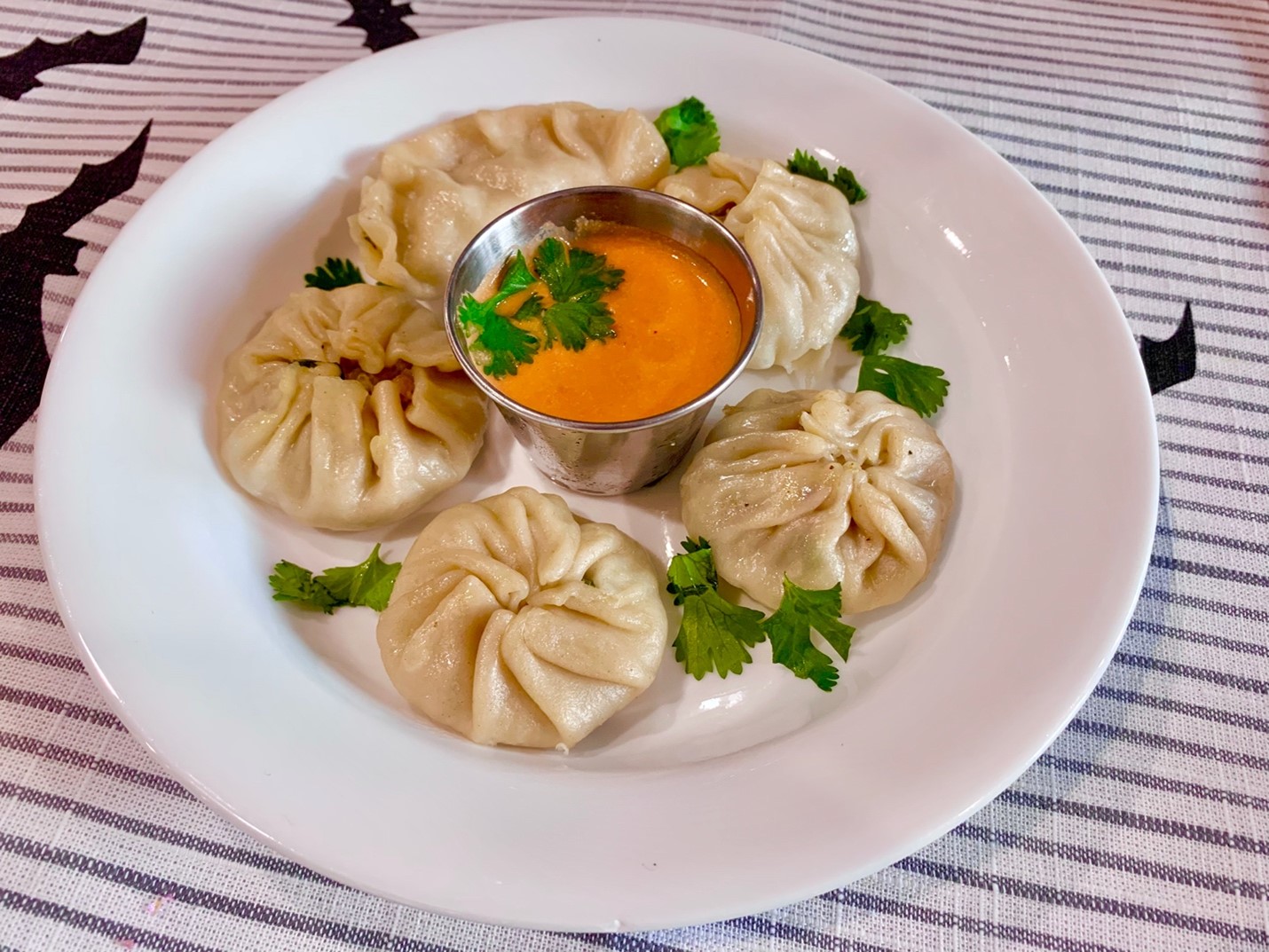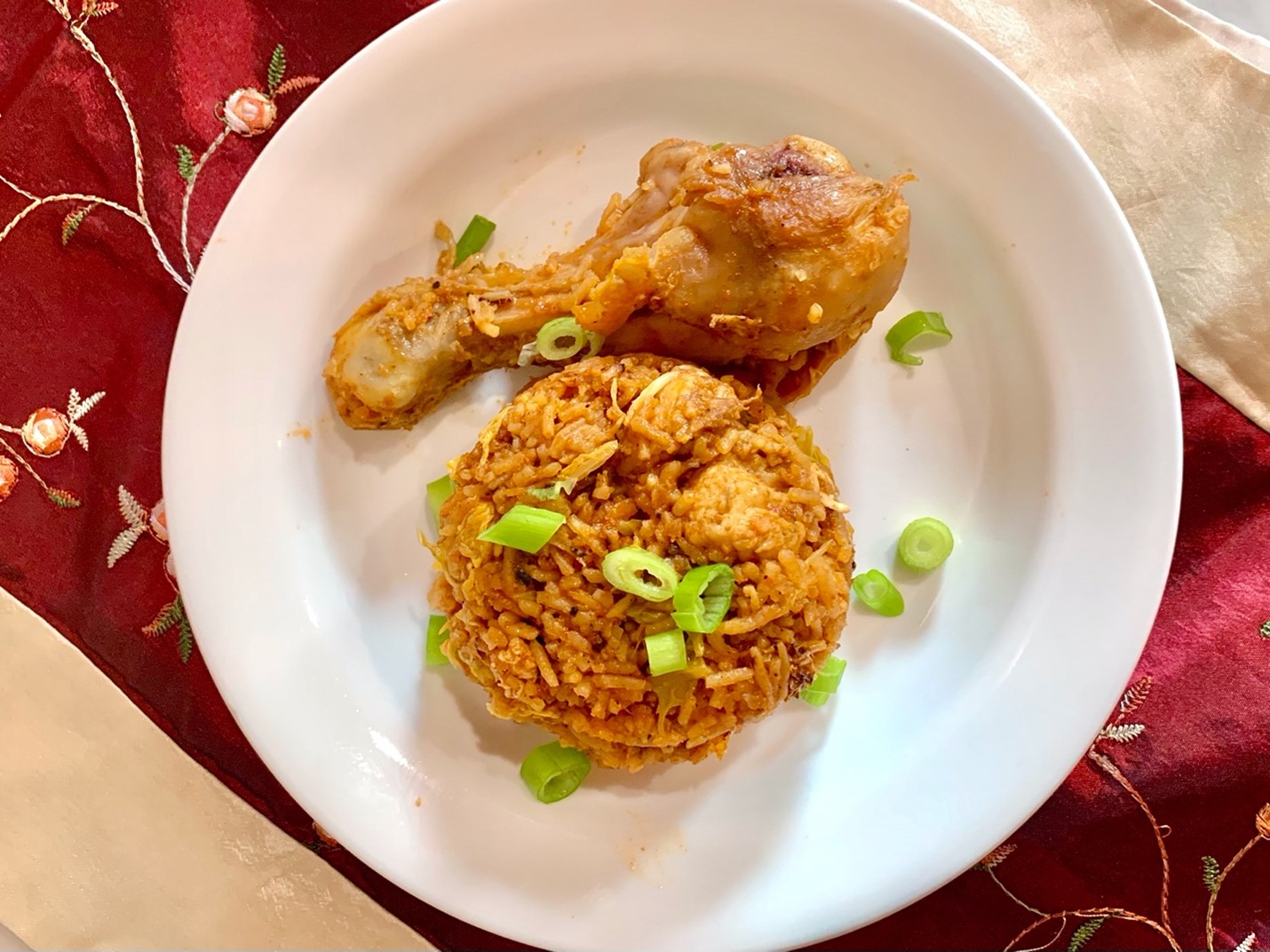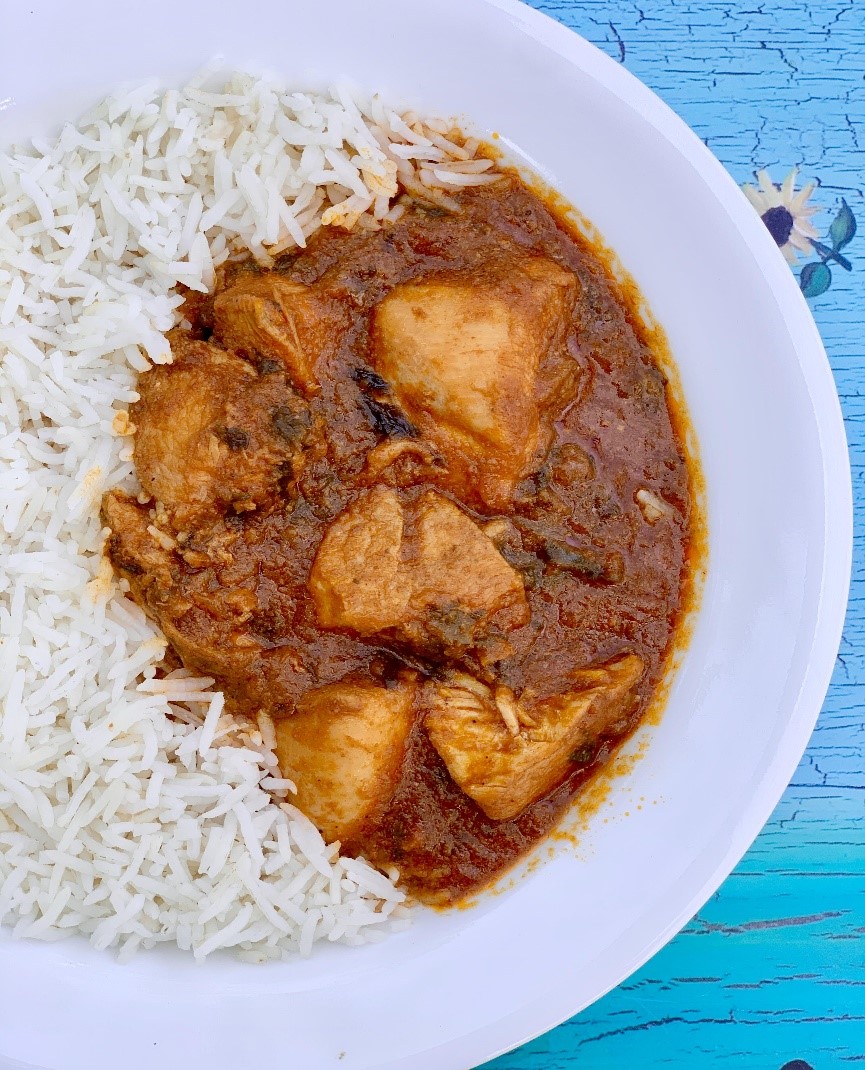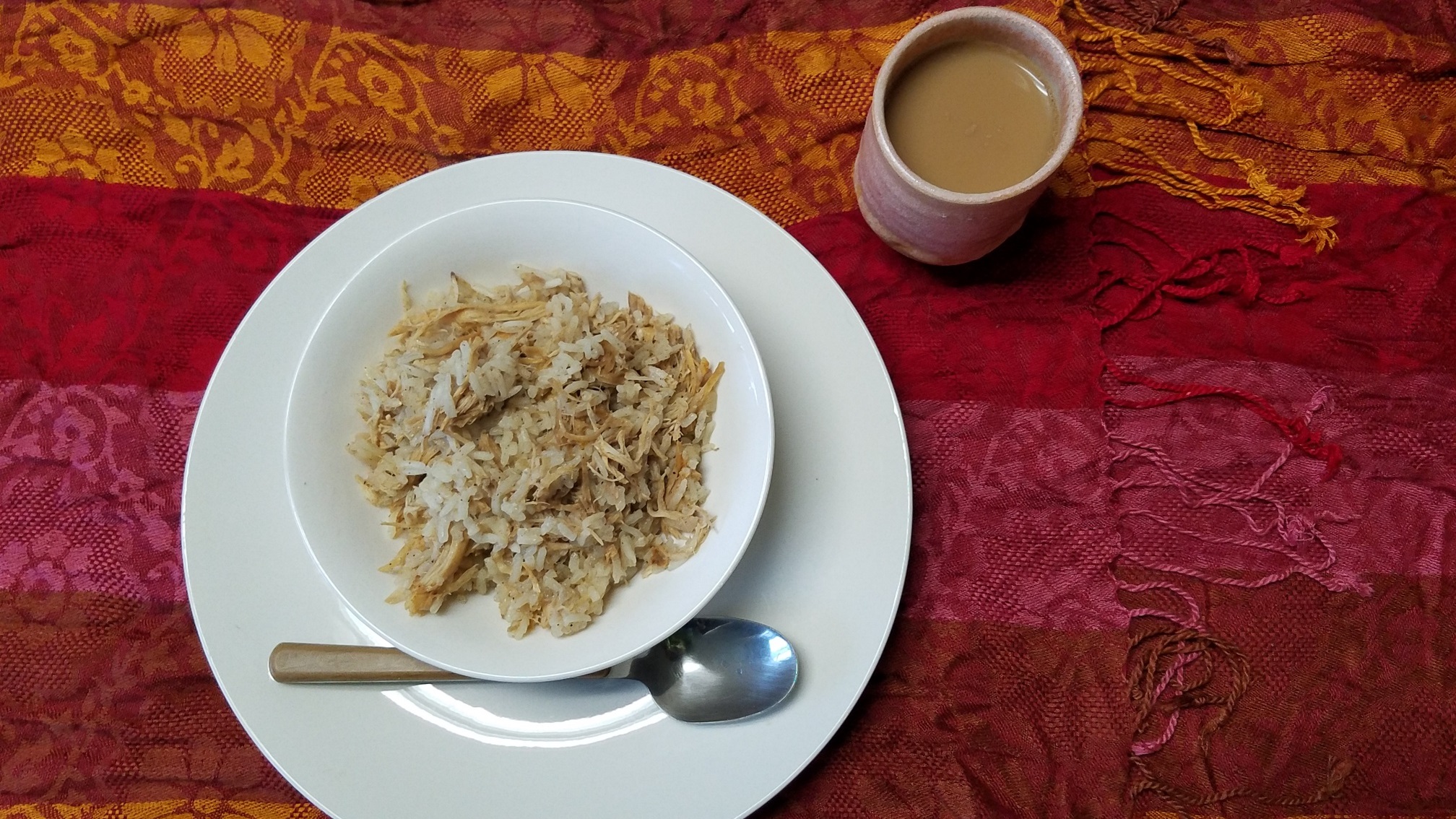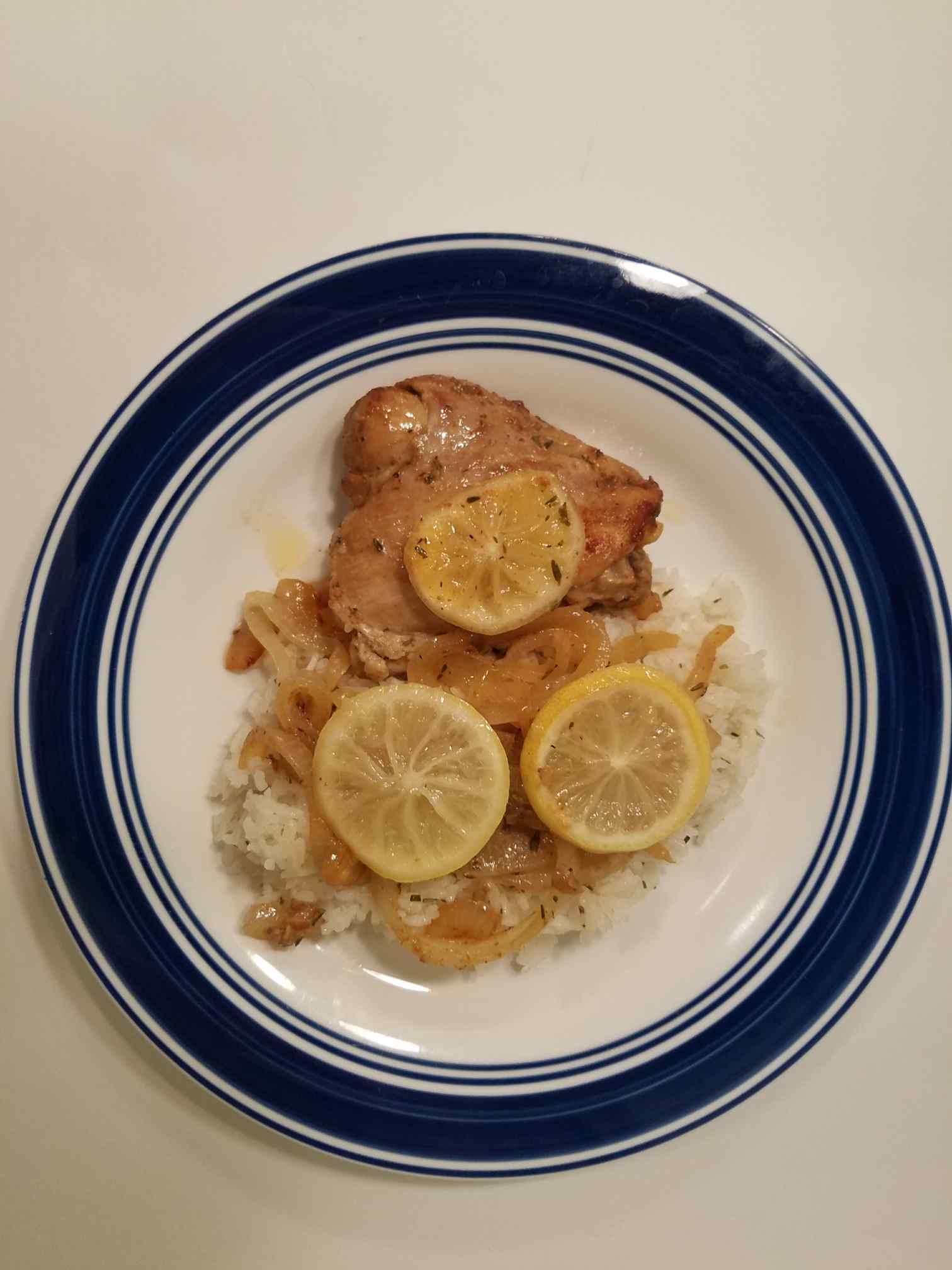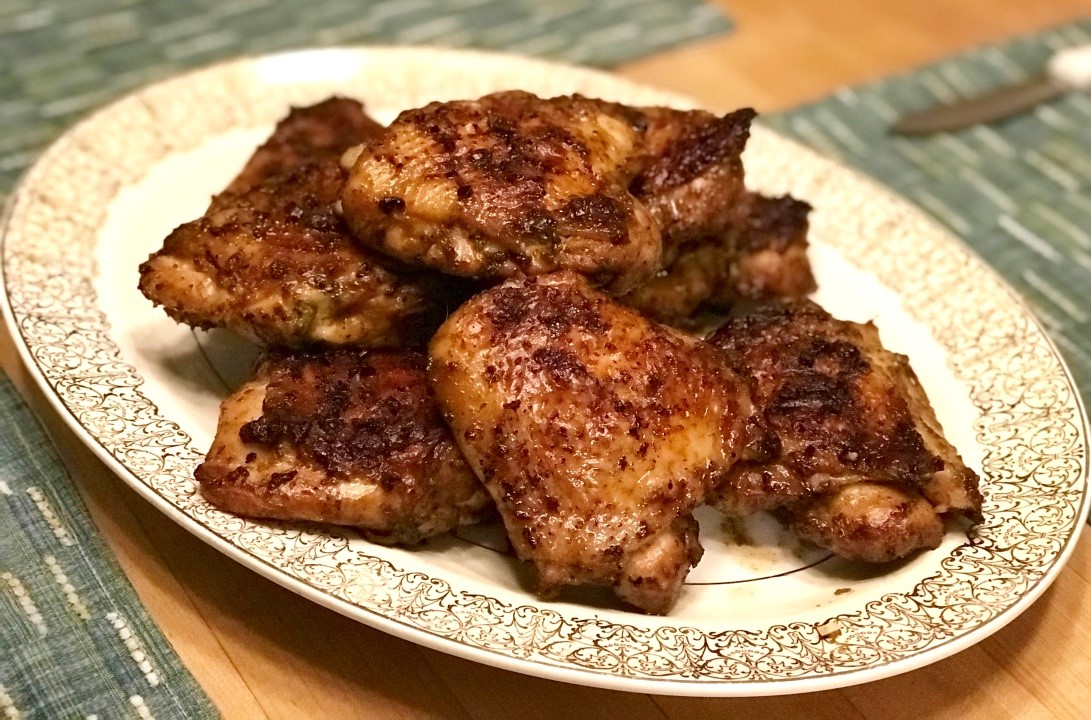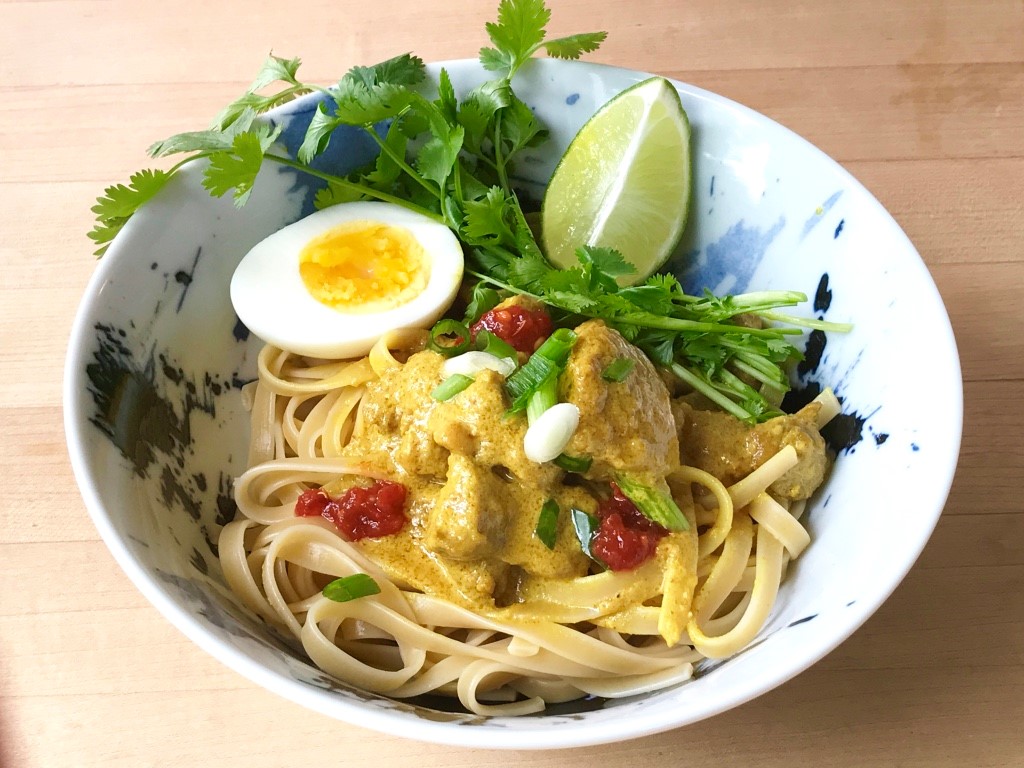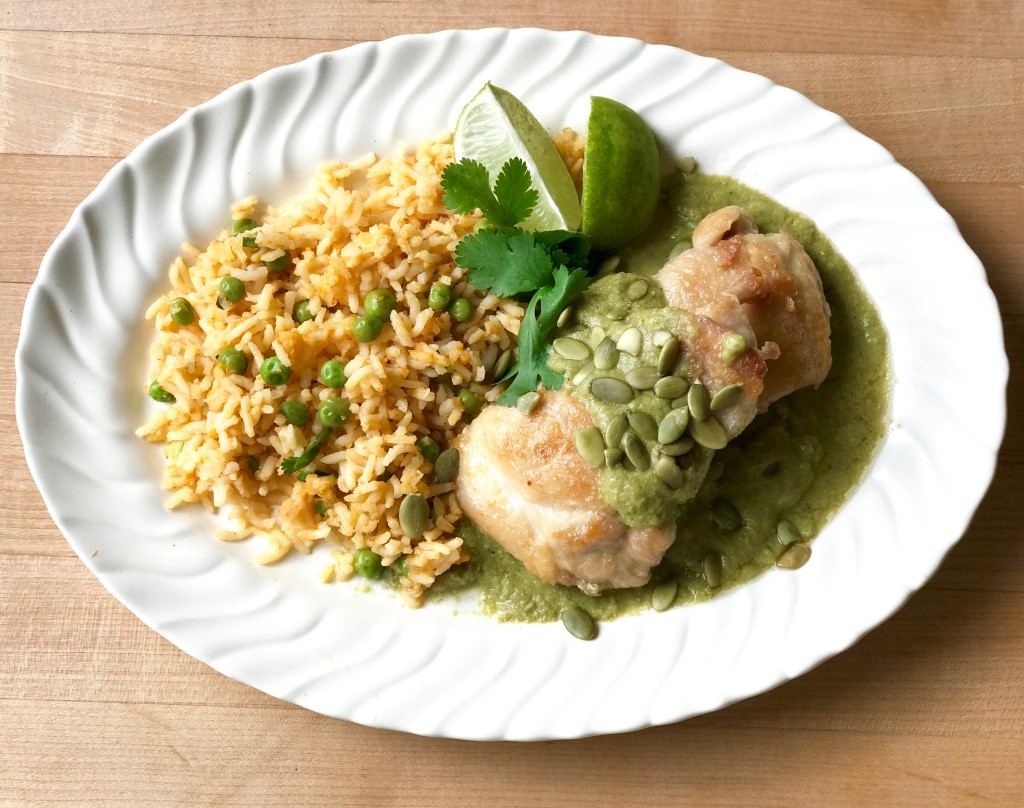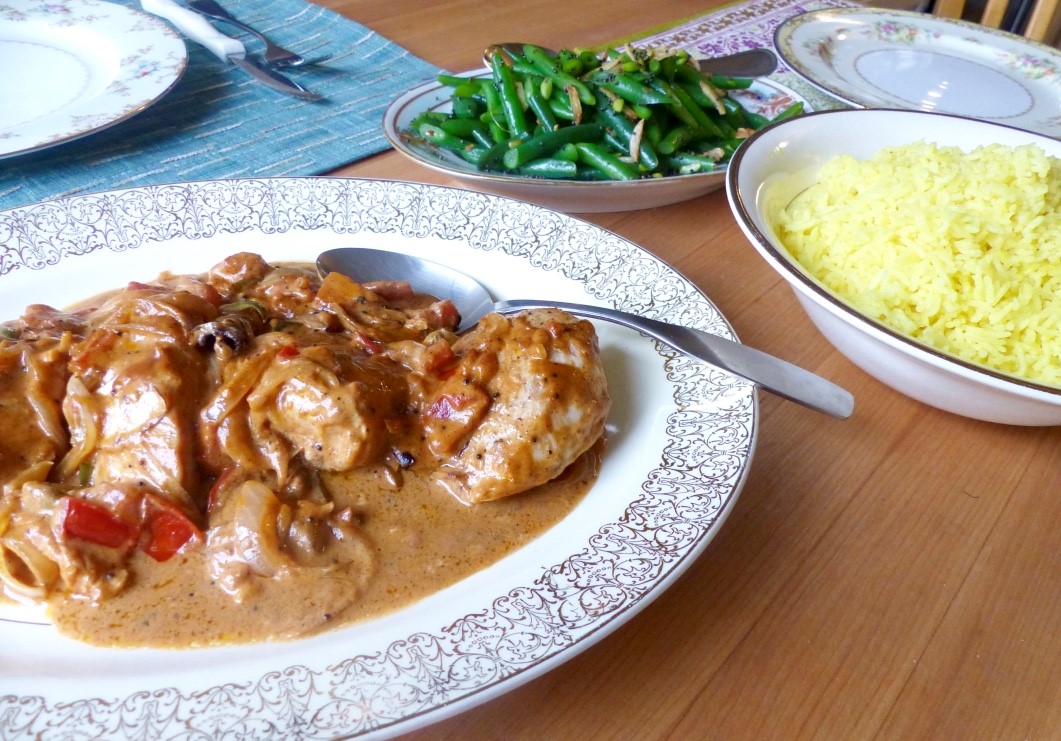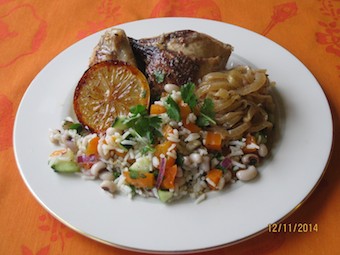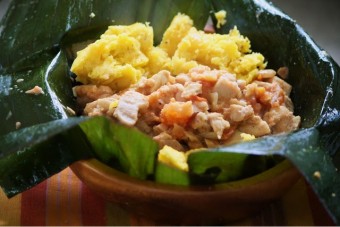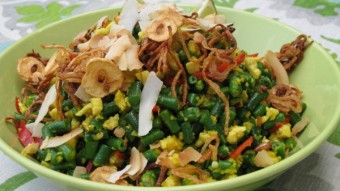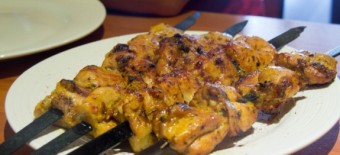The cuisine of Nepal is distinct to the different ethnic and linguistic groups and is influenced by the region of Nepal they lived and sourced ingredients from. The cuisine of the Khas, for instance, that is built around lentils, rice, and vegetables (Dal bhaat tarkari) as a staple meal is different from Himalayan cuisine which is heavy on stews, soup noodles (Thupka), and other warming dishes that are adapted to the cold weather and less fertile yield of that region. The Newars or Nepami are an ethnolinguistic group who are believed to have settled Nepal well before the migrations of the Tibetans and Indo-Aryans. Considered original inhabitants of Kathmandu, their cuisine is a reflection of their accessibility to varied agricultural yields. Chatamari is a Newari dish that is unique to the region. A rice crepe that is topped with spiced ground meat that has been mixed with aromatics, it is delicious, hearty, yet quick to prepare. Ground chicken or bison meat can be used, with the latter being commonly used in Newari recipes. The topping is reminiscent of the filling used in Nepalese momos, and as with momos, it gets cooked through steaming. Often referred to as “Newari pizza” it is less pizza and more savory crepe. Details
